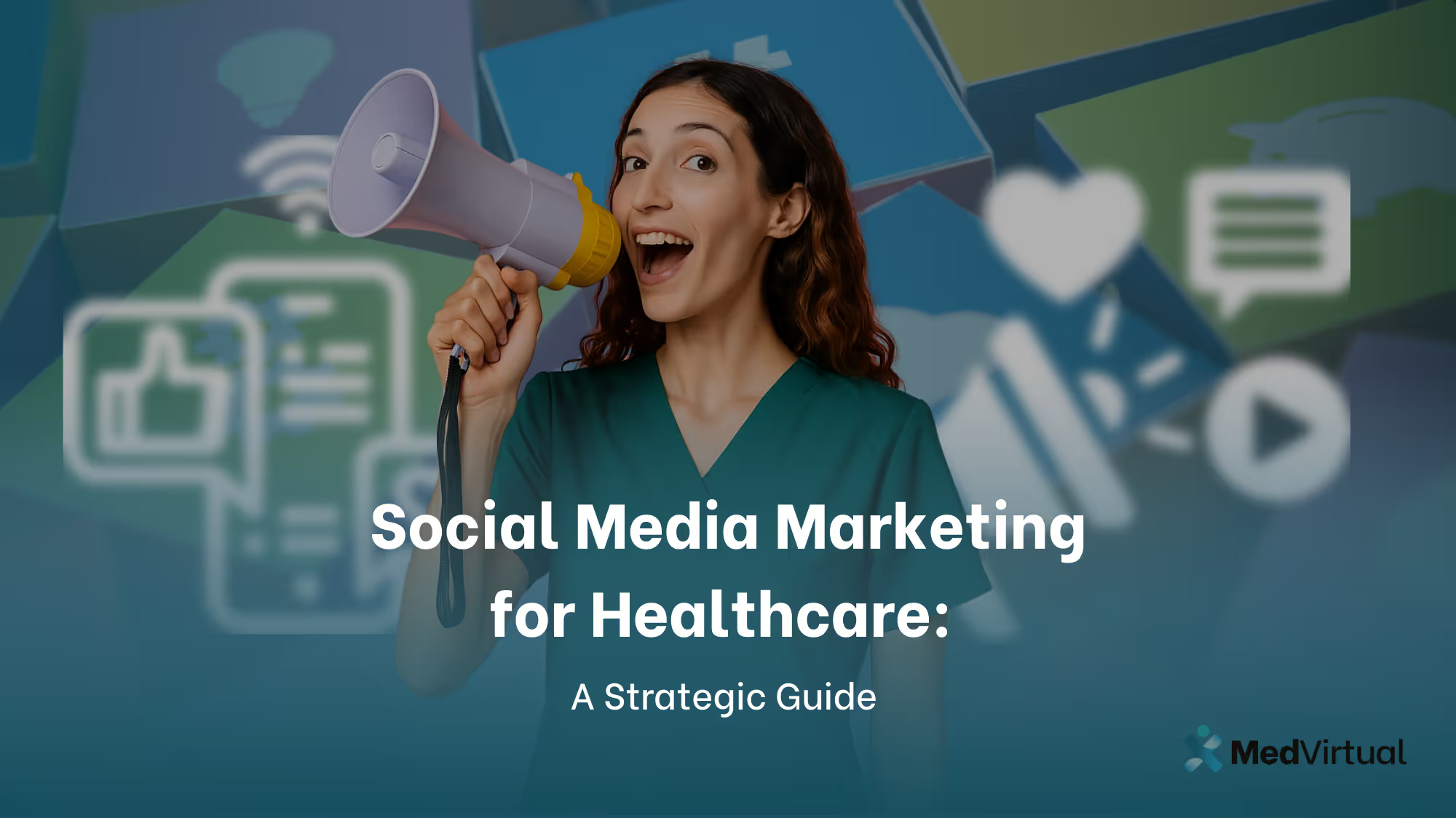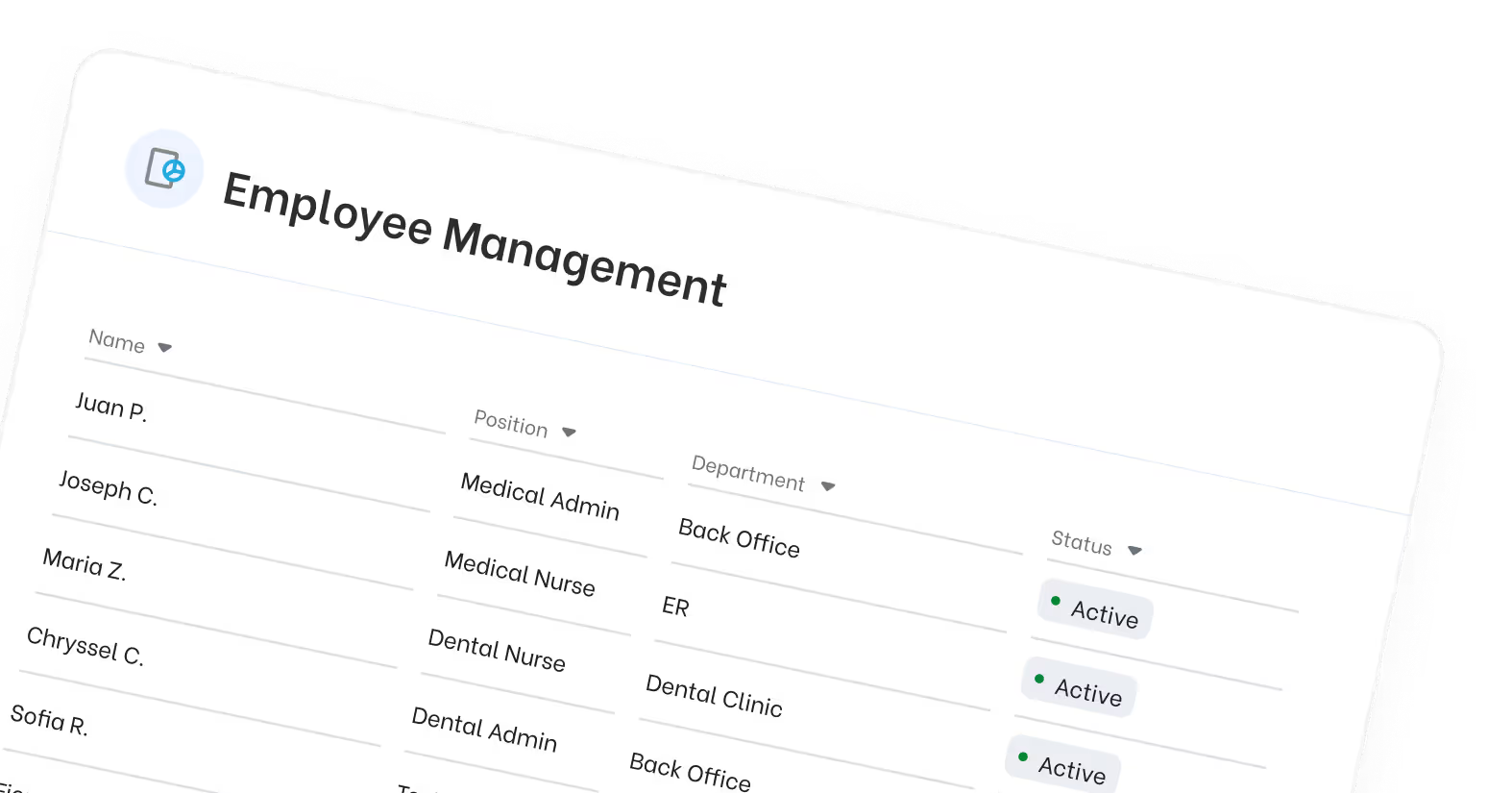Social Media Marketing for Healthcare: A Strategic Guide

Are you using social media as part of your marketing strategy to connect with patients, or just posting because you feel like you should?
Social media marketing for medical practices is no longer optional, especially for healthcare marketers. It’s a primary marketing channel for reaching today’s patients, especially as digital expectations grow. Whether you run a private clinic or manage several locations, your skill in using social media matters; it helps with visibility and builds patient trust.
This guide will teach you how to use healthcare social media marketing. These strategies will help you create an active social media presence. They will also help you communicate better with patients and meet your brand’s goals. We will guide you through each stage, from engaging your audience to managing a crisis. You will get practical tips you can use right away.
Key Takeaways
- Establish a strong online presence through strategic planning and audience understanding to enhance patient engagement and trust.
- Leverage educational content and user-generated stories to empower patients, boost public health literacy, and foster community relationships.
- Implement effective crisis communication and monitor social media performance to ensure timely information dissemination and optimize engagement strategies.
1. Build a Strong Online Presence
Your practice needs more than an account to grow your reach and improve patient outcomes. It requires a solid content strategy. A strong social media presence starts with clear objectives and consistent messaging tailored to your target audience.
Audit Your Social Media Profiles
Ensure your social media profiles are accurate and aligned with your brand voice. Upload your logo, verify your contact information, and describe your healthcare services clearly. Following social media guidelines builds credibility and makes it easier for prospective patients to find and trust you.
An active social media presence signals that you’re engaged and available. Sharing health tips helps your audience connect with your values and keeps your name in mind between visits.
Choose social media platforms that match your audience demographics. Facebook is great for families and caregivers. Instagram and TikTok offer opportunities for visuals and short-form content. LinkedIn may be ideal for recruiting and professional updates.
Maintain Consistency and Frequency
For healthcare providers, frequency matters. Posting a few times weekly keeps your practice visible and shows you’re responsive. Use scheduling tools to plan and maintain momentum.
If you’re a hospital or large group practice, coordinate across departments. Assign roles, review brand guidelines, and keep messaging consistent across all social media accounts. This unified approach improves your hospital's social media presence and builds trust.
2. Educate and Inform Through Targeted Content
Patients don’t just want to see your services; they want to understand them. One of the most effective ways to increase engagement through social media marketing for medical practices is by using your channels as a source of clear, reliable health advice.
Identify Patient Needs
Start by identifying what your patients frequently ask during visits. Use those questions to shape your content. Cover topics like preventive care, chronic condition management, treatment options, and updates in medical guidelines. This content builds trust and positions your practice as a reliable source of information.
Keep language simple. Avoid jargon. Aim to clarify, not impress. A well-crafted post explaining the difference between a cold and the flu can do more for engagement than a flashy promotion.
Use a Mix of Formats
Use various formats to keep things fresh: short videos, graphics, carousels, and plain-text posts. Video content increases watch time and builds a personal connection, especially when doctors or nurses speak directly to the camera.
Rotate through content ideas like:
- Frequently asked questions
- Health awareness days and monthly themes
- Preventive care tips
- Safe medication use
- Screening reminders
- Behind-the-scenes office moments
- Policy changes or new services
Add value with every post. Don’t just promote, teach. Patients who feel informed are more likely to return, refer others, and contribute to better health outcomes by managing their health more confidently.
3. Enhance Community Engagement Through Interaction
If you’re a hospital or large group practice, coordinate across departments. Assign roles, review brand guidelines, and keep messaging consistent across all social media accounts. This unified approach improves your hospital's social media presence and builds trust.
Listen and Respond
Strong community engagement begins with listening. Patients want to feel heard and seen, especially on platforms where they’re used to passive responses. A VA trained in healthcare social media can help you stay present by handling replies, tracking mentions, and surfacing insights from real-time feedback.
Interactive formats like polls, quizzes, and live Q&As spark conversation and uncover community concerns.
Boost Engagement with Authentic Content
Here’s what your VA can support to humanize your brand and boost interaction:
- Share behind-the-scenes content from your practice
- Spotlight patient success stories (with consent)
- Post mental health check-in prompts
- Re-share positive patient feedback and testimonials
- Flag and respond to high-priority comments or concerns
Healthcare organizations that nurture two-way conversations online see better retention, more referrals, and stronger loyalty.
4. Stay Proactive with Crisis Communication
Emergencies don’t wait for office hours, nor should your communication plan.
Patients expect fast, accurate updates when things change in a healthcare setting. That might be a weather closure, a public health notice, or a sudden policy shift.
Build a Crisis Response System
Effective healthcare social media marketing includes clear roles and ready-to-use templates. Your Virtual Assistant can help build a content bank of pre-approved messages for common scenarios, ensuring your updates go out quickly and align with brand standards.
Communicate Clearly and Calmly
Crisis communication is about tone. Patients need calm, direct, and transparent communication. A VA can monitor reactions, flag concerns, and use a social listening tool to identify recurring questions.
Steps include:
- Pinning emergency information to profiles
- Updating posts as conditions change
- Linking to official sources for reliable medical information
- Addressing misinformation publicly
The ability to communicate clearly in real time strengthens trust.
5. Attract Medical Talent Through Social Visibility
Use short-form video to introduce department leads or walk through the facility, complementing your social media posts during recruiting pushes.
Show Your Culture
Your social profiles are often one of the first places job seekers explore. Share posts that give insight into your team culture, values, and environment. Highlight what makes your workplace supportive, inclusive, and professionally rewarding.
Reach Passive Candidates
Use short-form video to introduce department leads or walk through the facility, complementing your social media posts during recruiting pushes. Social media is a powerful tool for reaching people who aren’t actively job hunting but would consider the right opportunity.
Influencer Partnerships and Compliance: Building Credibility Without Compromise
Working with trusted voices in your space can make a real difference in expanding your reach. However, success is not about chasing trends or going viral in the healthcare industry. It is about credibility, compliance, and meaningful connections. Influencer partnerships and a strong compliance workflow must go hand in hand when building your healthcare social media strategy.
Work with Purposeful Influencers
Choosing the right influencers is critical. In healthcare, influencer partnerships must be approached with precision. You are not looking for the flashiest personalities or the ones with the biggest follower counts. You are looking for community health advocates, clinicians, educators, and local voices who already speak to your target audience, which is also the responsibility of social media managers.
A trained virtual assistant can help identify these individuals by using social listening tools, monitoring health-related conversations, and reaching out to influencers who align with your brand’s mission and values. These partnerships are about building trust, not just getting likes. When a patient hears a message from someone they already trust, it carries more weight than a slick marketing post ever could.
Through these strategic collaborations, your healthcare organization can foster public health awareness, deliver educational content in an accessible way, and strengthen community engagement. It is about amplifying what you already do well, not trying to fit into every trending topic.
Build Compliance Into Every Step
In healthcare marketing, compliance is the foundation. Every influencer partnership and every piece of shared content must prioritize patient confidentiality, accuracy, and transparency.
HIPAA compliance is essential. Any health-related post, video, or testimonial must be reviewed carefully to ensure no protected health information (PHI) is disclosed without explicit, written consent. Even blurred faces, unnamed mentions, or casual comments can unintentionally reveal identifiable information if mishandled.
A strong compliance workflow involves:
- Making Consent Standard: Every time you feature a patient's story, photo, or testimonial, written consent should be obtained and securely filed. Consent should be specific to the use of the content on social media platforms, not just a general media release.
- Limiting Posting Authority: Only a small, trained team should have posting permissions on your social media accounts. They must understand HIPAA guidelines, know how to review content for privacy risks, and recognize what information should never be shared.
- Running Regular Reviews: Even after posting, monitor your social media presence. Look out for patient comments that reveal private details and moderate them appropriately. Mistakes happen fast in the digital space. Having eyes on your profiles minimizes the risk.
- Using Disclaimers Thoughtfully: Healthcare content must clearly state that it is informational, not medical advice. Disclaimers protect your audience and organization if your posts touch on diagnoses, treatments, or conditions.
- Maintaining Accuracy: Only qualified healthcare professionals should review and approve any health-related information before it goes live. There should be no exaggerations or clickbait; it should be reliable medical information that supports your patient education goals.
Why This Matters
Healthcare organizations operate in a different space from most brands. A post that crosses a line not only results in bad press but can also compromise content quality. It could lead to legal penalties, loss of trust, and serious harm to patient relationships.
Influencer partnerships done right can elevate your voice and deepen community trust. However, without airtight compliance practices, the risks are too high. When your team builds compliance into every step, from outreach to posting, you simultaneously protect your brand and your patients.
In healthcare social media marketing, credibility and compliance are inseparable. By prioritizing both with equal focus in your digital marketing effort, you set your organization apart as a voice in the crowd and as a trusted leader in your community.
Take the Next Step with MedVirtual
Your patients are online. Your future team members are, too. The question is: what are they seeing from you?
Social media marketing for medical isn’t just another task to delegate. It’s part of building relationships, growing visibility, and communicating values. Done well, it becomes an extension of your care.
At MedVirtual, we support healthcare providers who want to do this right. We help you build clear strategies, create compliant content, and maintain a presence that connects with your audience. We'll guide your next move, whether starting from scratch or refining what you’ve built.
Let’s work together to turn your social media into a space patients trust and professionals respect.
Contact MedVirtual today to discuss your goals and take the first step toward better healthcare communication.






